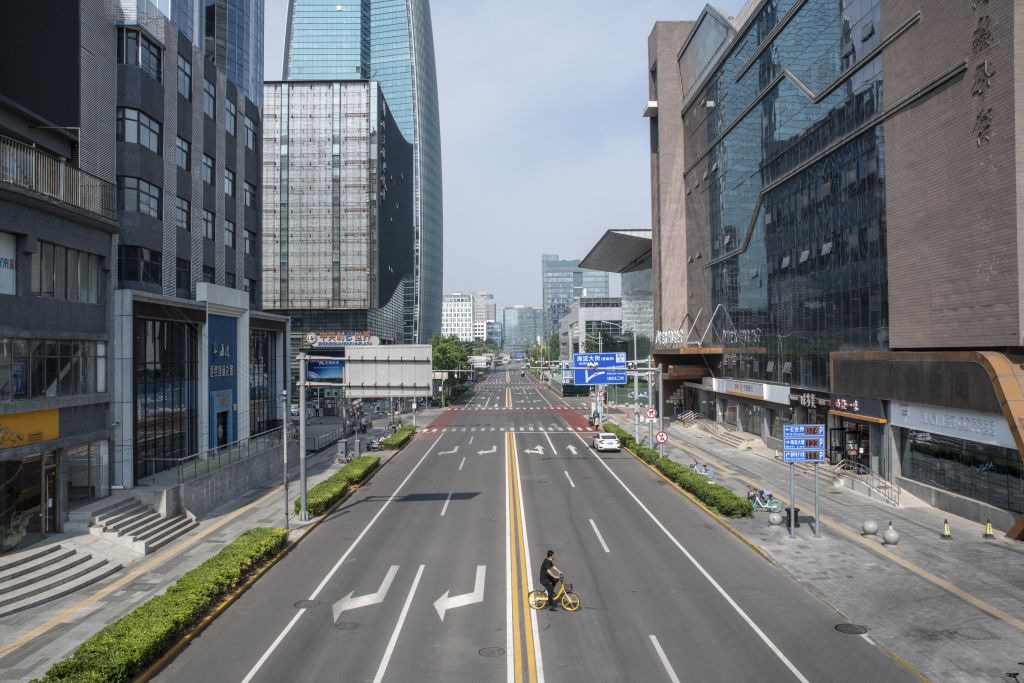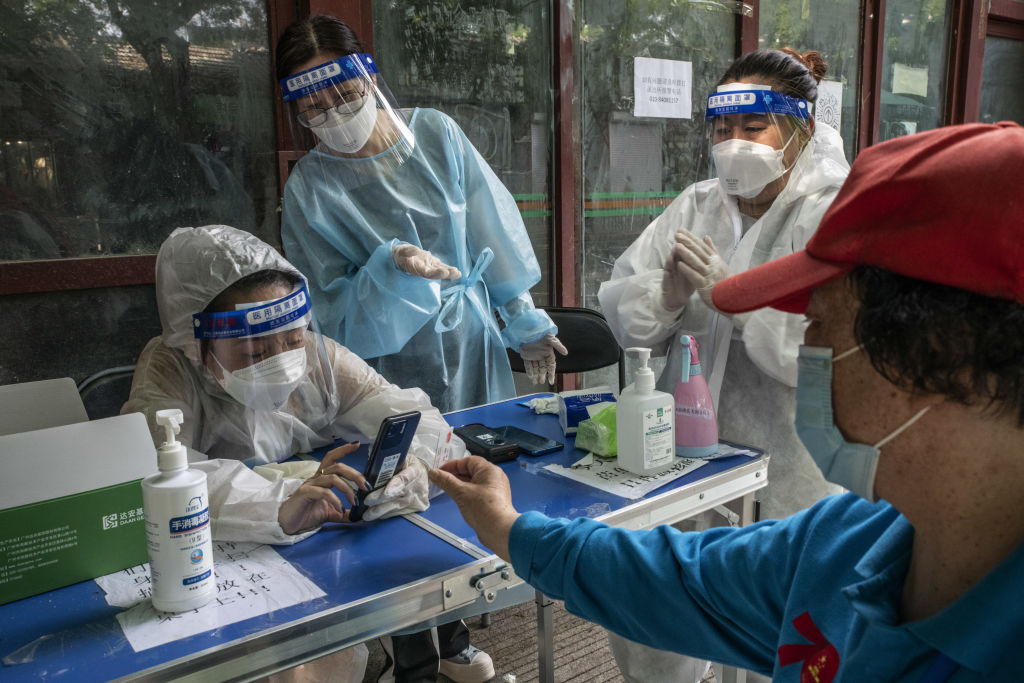
As Beijing’s Covid-19 outbreak drags on, the country’s top official overseeing pandemic control has shifted her attention from Shanghai’s ebbing crisis to the capital, raising pressure on local authorities to contain spread and potentially signaling harsher curbs to come.
Sun Chunlan, China’s Vice Premier and health czar whose appearance at virus hotspots across the country reflects the central government’s priorities, on Monday urged officials in Beijing to eradicate community spread more swiftly and implement more thorough measures adhering to the Covid Zero approach. She inspected the latest areas hit by the virus, including regions in the Haidian district that house China’s top universities, according to state media reports.
Sun’s trip to Beijing, after being based in Shanghai for the past month, is a sign the government is losing patience with the outbreak. The capital reported 48 cases for Monday, down from 99 on Sunday, which was the highest daily tally of the current outbreak. While the numbers are still small, the city has been recording dozens of cases a day for almost a month, suggesting that mass-testing drives and a variety of measures such as work-from-home orders in some districts haven’t been enough to stamp out the spread.
Read More: What a Beijing COVID-19 Lockdown Would Mean for China and the World
The inability to eliminate Beijing’s outbreak underscores the challenges of China’s strict Covid Zero approach, with the unprecedented shutdown of Shanghai providing a cautionary tale of how early mistakes could lead to rapid spread. The strategy has become controversial in the face of highly transmissible variants, leaving the country isolated and at odds with the rest of the world, which is increasingly living with the virus.
Containing Covid has also come at a crushing social and economic cost. In the latest move to prop up the economy, the government will offer more than 140 billion yuan ($21 billion) in additional tax relief mainly aimed at businesses as it seeks to offset the heavy impact of coronavirus lockdowns on the world’s second-largest economy.
The measures include additional tax rebates to companies and cuts of 60 billion yuan on passenger-car taxes, China National Radio reported, citing a decision from a meeting of China’s State Council, a top government body chaired by Premier Li Keqiang.

Sun is the only female vice premier and the sole woman on its powerful 25-member Politburo. At 72 years of age, she will likely retire after a leadership reshuffle later this year, yet she has become the most visible face of China’s unyielding zero-tolerance virus strategy. After spending 100 days in Wuhan, the original virus epicenter in early 2020, Sun has visited every place in mainland China facing a serious outbreak in the past two years, from Xi’an to Jilin, and helped oversee Hong Kong’s deadly virus surge.
Social media posts joke that lockdowns follow wherever Sun goes; indeed there’s been a pattern of stricter containment efforts after her visits, during which she invariably delivers a message urging local officials to act more boldly in adherence to Covid Zero.
Curbs in Beijing are escalating accordingly. Officials moved more than 1,800 residents to centralized quarantine in neighboring Hebei province after multiple infections were found in their residential compound in recent days. The residents have been moved to Zhangjiakou, which hosted some events at the Beijing Winter Olympics earlier this year, the Global Times reported.
Read More: Shanghai’s COVID-19 Lockdown Pushes Residents to the Brink
There were 639 infections reported China-wide for Monday, down from 802 infections on Sunday. The tally is holding below 1,000 for the first time since early March, and is down from a daily peak of almost 30,000 on April 13.
The port city of Tianjin, which borders Beijing, added 18 local infections on Monday, down from 47 on Sunday. Shanghai reported 480 new cases, down from 558 on Sunday day. No new infections were found outside of government quarantine in the financial hub.
While Shanghai has been officially easing the lockdown that kept its 25 million residents confined to their homes for almost two months, zealous grassroots volunteers who police housing compounds are still preventing many people from going outside.
More Must-Reads From TIME
- The 100 Most Influential People of 2024
- Coco Gauff Is Playing for Herself Now
- Scenes From Pro-Palestinian Encampments Across U.S. Universities
- 6 Compliments That Land Every Time
- If You're Dating Right Now , You're Brave: Column
- The AI That Could Heal a Divided Internet
- Fallout Is a Brilliant Model for the Future of Video Game Adaptations
- Want Weekly Recs on What to Watch, Read, and More? Sign Up for Worth Your Time
Contact us at letters@time.com